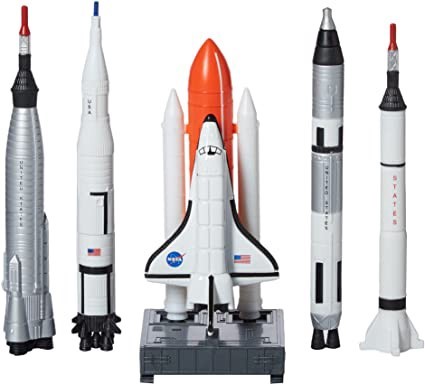Space Exploration, Technology and the Future
By Ayokunle Saba | Published On May 18, 2020During my youth service in 2011 under the NYSC scheme, I joined a friend on a computer training programme he organised for civil servants in Oyo State, Nigeria. The training was for 3 days (if I remember correctly).
In the course of delivering his lesson, he said we were gradually moving away from the Information Technology age; I was like “really� Although I was doing some IT related things at that time, I had not given the future much thought. Besides, these civil servants were being taught Computer Appreciation.
Remember computer appreciation? Well, if you don’t, it basically means introduction to computing. It affords the learners an opportunity to see and appreciate what computers were capable of doing and why they needed to join the moving train.
I doubt we need such training in this age and time. It appears everyone has latched onto IT already. Doubting me? Didn’t you get a routine (prayer) broadcast message from your ancestors today? We all do, don’t we? Oh! Not ancestors? I mean grandma and grandpa. Apologies. Smiles.
So, my friend said we’re moving away from IT to Space Technology. I was like “Huh!?†Space what? That space stuff has a way of making me feel like the end will soon come. Know that feeling? Could be scary. After the day’s class, I did some digging but wasn’t really impressed by what I found.
Let’s cut to the chase…
Where have you been?
World’s richest man 2019/20, Jeff Bezos (the founder of Amazon) set up a company called Blue Origin in year 2000. That was about 18 years before he first became the richest man in the world according to Forbes. Wikipedia describes the company this way “Blue Origin is an American privately funded aerospace manufacturer and sub-orbital spaceflight services company headquartered in Kent, Washington.
Circa 2002, The CEO of Tesla (an Electric Car Company) Elon Musk poured almost all of his earnings from the sale of the company he co-founded earlier — Paypal — into setting up a Space Exploration company — SpaceX. As a child he loved reading about space, the galaxies and planetary systems.
Elon Musk has a dream of getting to Mars, not just to see it and come back, he wants to colonize Mars. Guess what? He doesn’t mind doing it alone. Surprised? Don’t be.
He’s a big dreamer.
He practically went against the maxim “you don’t have to reinvent the wheels†in setting up SpaceX. He built all (actually about 80%) of the parts and components including software and communication system of SpaceX’ rockets from the scratch. So, he isn’t just a dreamer; he brags on his dream, and stays awake all night to get them into reality. Wikipedia puts it this way “he set up SpaceX with the goal of reducing space transportation costs to enable the colonization of Mars. How does an individual get into an industry and tries to reduce cost of what he knows nothing about? Well, so far has he reduced that cost? Google it. He has!
Sir Richard Branson, the British business magnate and CEO of the Virgin Group is an entrepreneur extraordinaire. In 2004, he founded a company called Virgin Galactic, a spaceflight company. Virgin galactic is a commercial spacecraft set up to provide suborbital spaceflights to space tourists and suborbital launches for space science missions. A woman is reported to have paid $250,000 to go spend 5 minutes in space on a Virgin Galactic spaceflight. BBC reports that she paid for the flight in the year 2005.
Lastly on this introductory piece.
Have you ever heard of something called the ISS — The International Space Station? In lay man’s terms, it is an apartment (like a room and parlor, self-contain) in space. It was created in 1998 to aid laboratory research in space and operated by 5 space agencies— USA, Canada, Russia, Japan and Europe. So, the ISS is basically a laboratory in space. Just recently, an astronaut, Christine Koch returned to earth after spending about 350 days in the ISS — the longest ever by a woman. Friends, that’s almost a full calendar year in space. The ISS has remained occupied by humans carrying out different researches since year 2000. So, a lot is going on that you may have missed.
Don’t assume this is a popularity contest or just a “money-miss-road†kind of stuff. These guys have laid the foundation for what will happen in the coming years.
Ever since December 1972 during the last Apollo mission, no man has landed on the moon. That’s 48 years since man last went as far as the moon. The moon is said to be almost 380,000 km from the earth while Mars is approximately 200 million km from the earth. These distances are relative by-the-way.
I wager that Humans will land on the moon again in this decade and advance comfortably towards reaching Mars (that’s if we don’t arrive there before 2029). These feats will be achieved with reusable rockets and will shape the next decades. In addition, the trips won’t be a one flight wonder; there will be trips and trips to and from space.
Artificial Intelligence, Big Data Analytics, Robotics, IoT and most of the new technologies will definitely benefit from the advancement in space exploration and research. Watch [this] Space.
